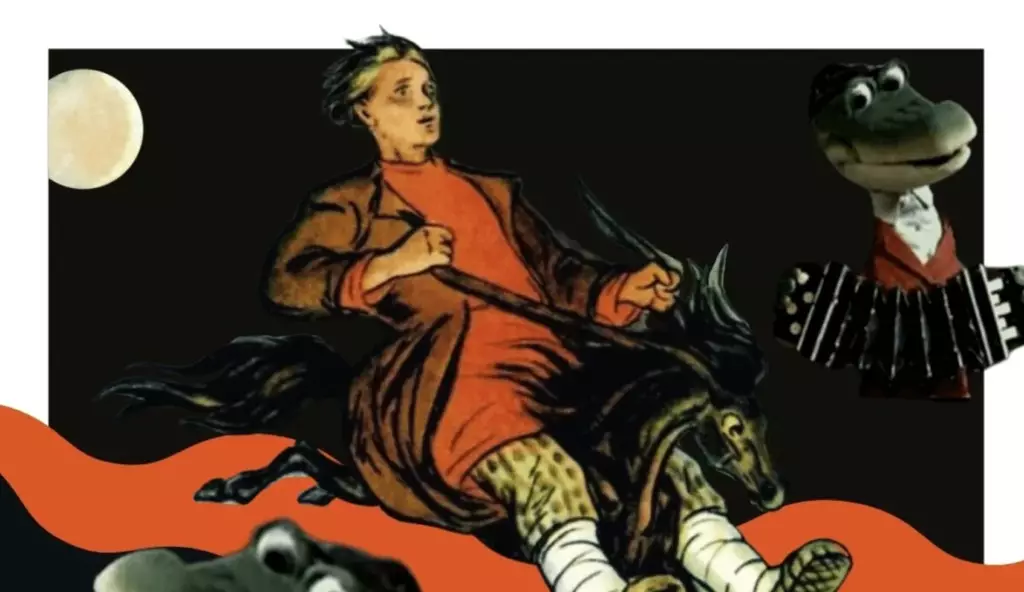
"Tablecloth, a tablecloth of a long journey and rests straight into the sky ..." - everyone remembers this wonderful song V. Shainsky E. Uspensky from the cartoon "Shapoklyak". We understand why the road in Russian culture is associated with a tablecloth.
During the conflict, we can say: "Tablecloth road!". Like, clean out, no one holds you! But a negative shade of this expression has acquired about the late XIX century, most likely, by analogy with another phraseologist "there and the road".
"I understood the Russian language well, I know, when they say:" The tablecloth "means:" Clean all the hells ... "- A. N. Tolstoy
In times of Russia, the expression "Tablecloth!" Wisted a happy wayThe tablecloth is not only an important detail of the home decoration, and the so-called component of the cultural code of the Russian people.
In Russia, the tablecloth was considered a sacred item. Even a simple poor tablecloth should be in every family and necessarily clean, whlen. Previously, the belief existed that if a person waters his hands with a tablecloth, he will suffer all his life from burrs. It was also believed that the tablecloth had magical properties, protects during meals from the effects of unclean strength.
The road, on the contrary, was considered a dangerous place where unclean power wakes. Therefore, they spoke a "tablecloth road!", As if these words were driving a protective tablecloth on a potentially dangerous way, so that the traveler would safely reached the destination.
The road was perceived in antiquity as a way to the unknown, from "His" to "Alien". It was on the way that the fate of man was peaked. According to Slavic beliefs, it was impossible to build a house where the road was held, and the travelers were dangerous to sleep near the road. Yes, and the famous belief "sit down on the track" is also associated with the beliefs of Slavs.
Please note that the fate of heroes in most folk fairy tales is associated with wide roads, overgrown with trails through the forest, field or mountains.
"Here the guy came out on a big way, bitterly I was crying ..." - A. N. Afanasyev.
As M. M. Bakhtin wrote, "the value of the chronotope of the road in the literature is enormous, a rare work is done without any variations of the motive of the road."
In the XIX century in Russian literature, the image of the road became a symbol of Russia!We read in literary critic G. D. Gacheva: "Russia is carried out as an endless dialogue between St. Petersburg and Russia, cities and roads. Read the "City" on the contrary - will come out "roads": they are antipodes. Petersburg is a "place", and Rus is the road path. "
In fairy tales, the road leads a character into a clean field, in a dense forest, to the hut Baba-Yaga or, on the contrary, helps to return home. Magic tangle on confusing forest paths leads the hero to the empires.
Therefore, it is not surprising that it was in Russian that a phraseological "tablecloth road" appeared, which is used to this day.
Sources:- Birich A.K., Mokienko V.M., Stepanova L.I. Dictionary of Russian phraseology. The historical-etymological reference book.
- Telia E. N. Great Fraseological Dictionary of the Russian Language. - M.: AST-Press. 2006.
- Neela E. M. Magic-fabulous roots of science fiction. Publishing house LSU, 1986.
